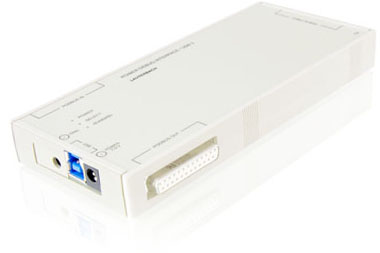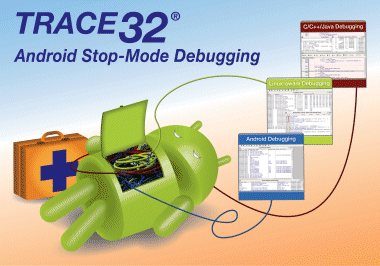Lauterbach GmbH

PowerDebug System
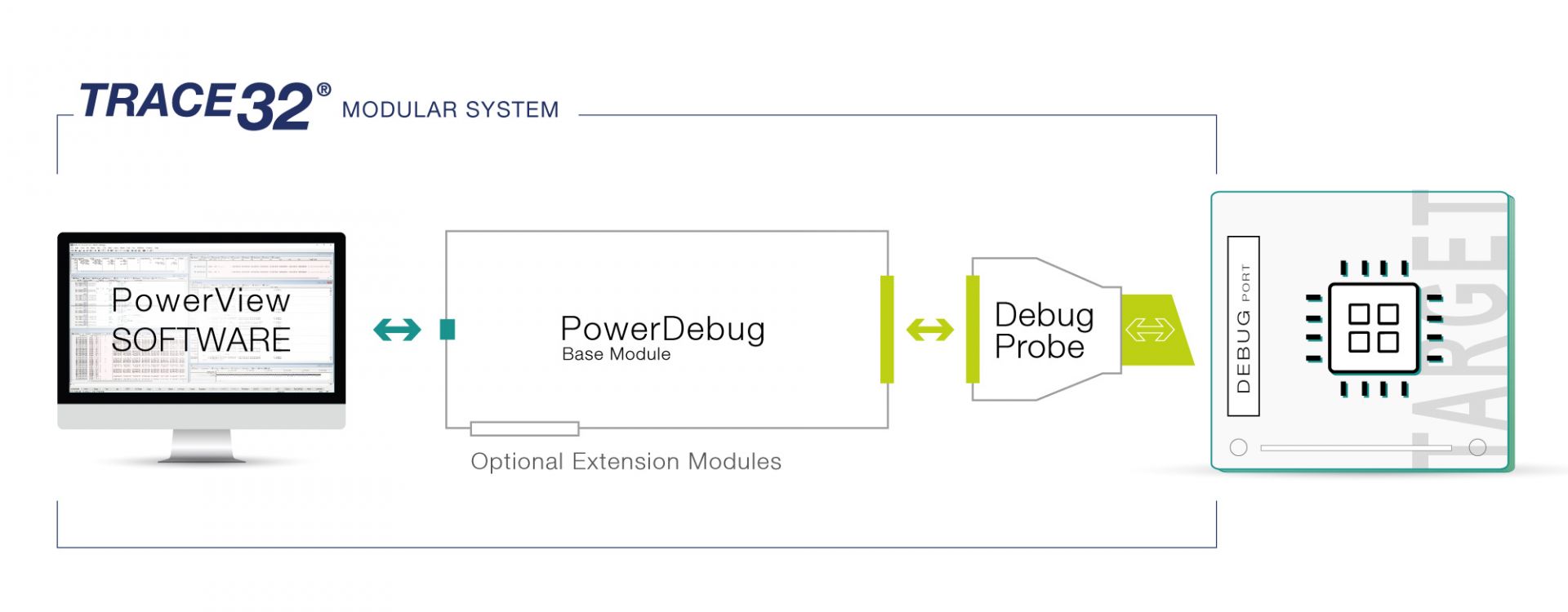
PowerDebug E40
Highlights
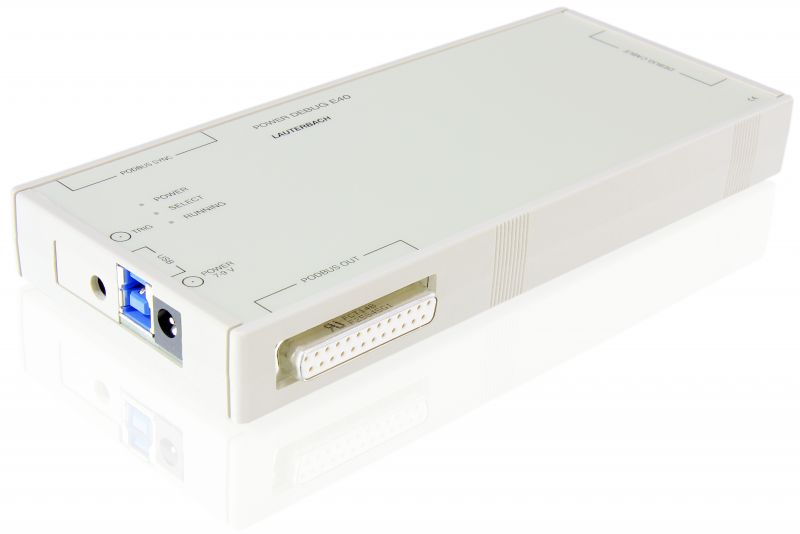
A Powerful Standard Debugger
The PowerDebug E40 is our essential-line debug controller, offering you the performance to help you power through simple and complex debug tasks. It supports USB3 high speed connection to the host, and can be extended with logic analyzer modules. Our universal debug tool is designed to maximize your productivity and return on investment. The energy-efficient design allows a fanless operation for silent debugging.PowerDebug System
Modular and Powerful Debug System
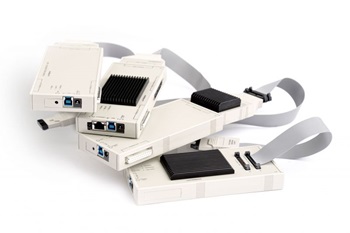
PowerDebug is a powerful, modular, flexible debug system that adapts and grows with you as you move from project to project and chip to chip. It provides the broadest coverage of supported chips and core architectures in the embedded industry.
Start with a universal PowerDebug module and target-specific debug probe. Extend your debug system with trace and logic analyzer modules for run-time analysis, code coverage, or in-depth troubleshooting.
Start with a universal PowerDebug module and target-specific debug probe. Extend your debug system with trace and logic analyzer modules for run-time analysis, code coverage, or in-depth troubleshooting.
PowerDebug X50
Highlights
Expandable, High-performance Debugger
PowerDebug X50 is our high-performance, modular, and future-proof debug controller. It can be expanded with PowerTrace, our leading embedded off-chip trace solution, as well as our logic-analyzers. You can connect it to your PC via USB 3 or Gigabit Ethernet, making it the perfect solution for both on-site and remote debugging.No matter what your application looks like today or in the future, the PowerDebug X50 meets all your challenges, maximizes your productivity, and ensures a valuable return on investment.
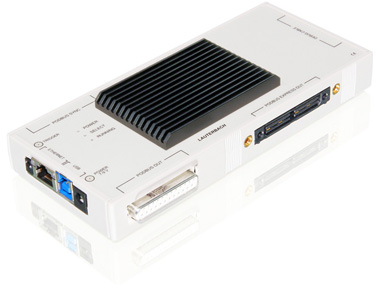
Configuration Overview
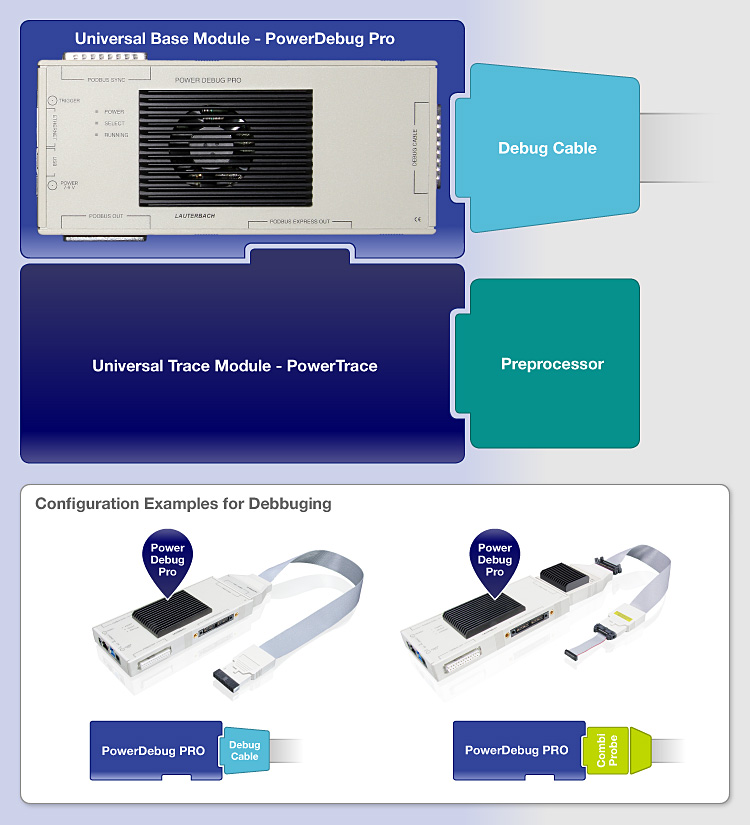
Trace Extensions
PowerTrace Serial 2
- 4 GByte trace memory
- Universal module that is prelicensed for a trace protocol on delivery
- Additional trace protocol licenses can be added
- Up to 12.5 Gbit/s per lane
- Maximum bandwidth of 100 GBit/s
- Aurora-based trace protocols up to 8 RX lanes
- PCIe 3.0-based trace protocol up to 8 RX/TX lanes
- Reference-clock and bit-clock support
- Fast trace upload to the host computer
- Support for TRACE32® Streaming up to 400 MByte/s
- Includes Standard Probe (17 digital channels)
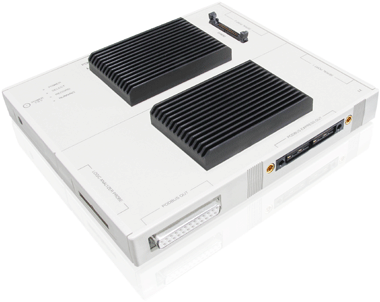
PowerTrace III
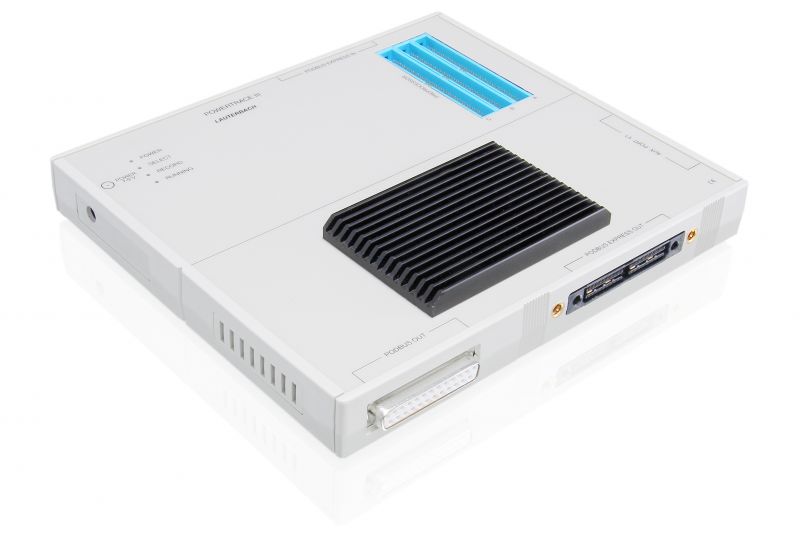
High-performance parallel trace extension:
- Up to 8 GByte memory
- Parallel trace with up to 36 signals
- 600+ Mbit/s per signal for up to 17 signals
- 400 MByte/s streaming
PowerTrace II LITE
Cost effective parallel trace extension:
- Memory Size: 1 GByte
- Application: Parallel trace
- Maximum Bandwidth: 10.8 Gbit/s
- Streaming Performance1 (Peak / Average): 1 350 / 100 MByte/s
- Parallel Trace2: Up to 36 lines 600+ Mbit/s per line @ 9 lines, 450 Mbit/s per line @ 17 lines, 225 Mbit/s per line @ 36 lines
- Serial Trace: Up to 4 lanes3,4 6.25 Gbit/s per lane @2 lanes, 4.50 Gbit/s per lane @3 lanes, 3.38 Gbit/s per lane @ 4 lanes
- Option for logic analyzer and energy profiling: Not Available
- Required debug module: PowerDebug X506
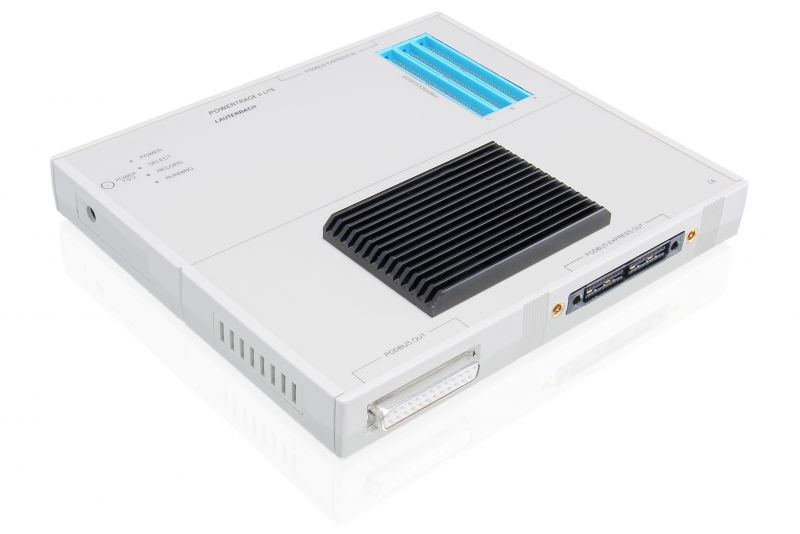
Debugger Features
Highlights
- Multicore Debugging
- Peripheral Browser
- FLASH Programming (Memory-Mapped)
- FLASH Programming (Protocol-Based)
- HLL Debugger
- Sample-based Profiling
- MMU Support
- UEFI Bootloader
- Hypervisor-aware Debugging
- OS-aware Debugging
- Android Debugging
Multicore Debugging
- Debugger for all cores of a multicore chip
- Debugging of application cores, DSPs, accelerator cores and special-purpose cores
- Debugging of more than 80 core architectures
- Support for every multicore topology
- Support for all multicore operation modes
- Support for AMP and SMP systems
- Single debug hardware can be licensed for all cores of a multicore chip
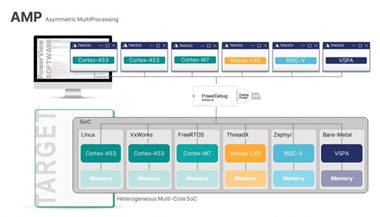
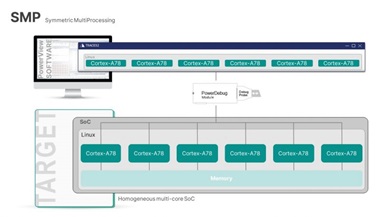
Logical Display of Peripherals
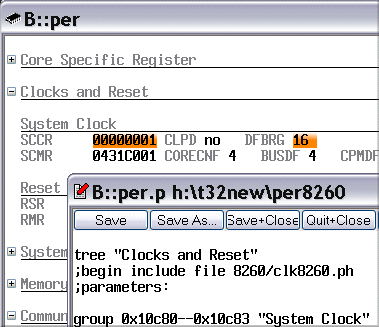
- Display of onchip peripherals
- User definable windows
- Interactive window definition with softkey support
- Pulldown menues for selection of choices
- Additional description for each field
FLASH Programming (Memory-Mapped)
- Optimum flash programming performance
- Support for all file formats
- Ready-to-run flash scripts
- Ready-to-use flash programming algorithms
- Dialog- or command-based programming as well as full scripting
- Full awareness of sensitive data
- Flash declaration via CFI
- Easy handling of different flash types on a target
- Software breakpoints in flash
- Simple code patching in flash
- Flash programming via boundary scan
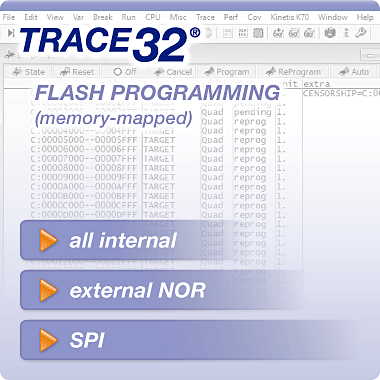
FLASH Programming (Protocol-Based)
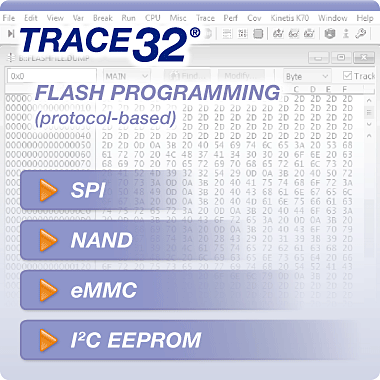
- Optimum flash programming performance
- Support for elf, Intel hex and S-record format
- Ready-to-use flash programming scripts
- Ready-to-use flash programming algorithms
- Memory dump for displaying the flash content
- Flash content can be easily copied and modified
- Flash programming via boundary scan (SPI, eMMC, I2C)
- Full programming access to spare area (NAND)
- Bad block treatment (NAND)
- ECC generation: Hamming, BCH, Reed-Solomon (NAND)
High-Level-Language Debugging
- Supports multiple languages
- Full support for C++
- Integrated into TRACE32® environment
- Supports most compilers and hosts
- Same user interface on different hosts
- High speed download
- Debugs optimized code
- Display of function nesting
- Display of linked lists
- Powerful expression evaluation
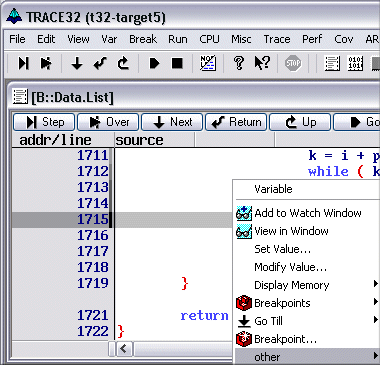
Sample-based Profiling
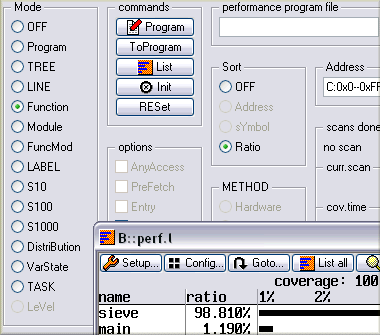
- Long-time performance analysis for functions
- Long-time performance analysis for tasks
- Long-time analysis of the contents of a variable or memory location and more
MMU Support

- Full integrated support of processor's MMU
- Display of processor MMU registers
- Display of MMU table entries
- Display of address translation table
- 'Shadowing' MMU address translation inside debugger
- Full virtual and physical access to target at any time
- Debugger has optionally write access to write protected memory areas
- Detection and decoding of software MMU tables built by operating systems
- Support for several user space MMU tables side by side
- TLB context tracking and git statistics via CTS
Debug Support for Unified EFI Bootloader
- Support by a loadable extension
- Debug support for all UEFI phases
- Tailor-made display windows for each UEFI phase
- Continuous solution without "debug gap"
- Debugging from reset vector
- Debugging of dynamically loaded drivers from their entry point
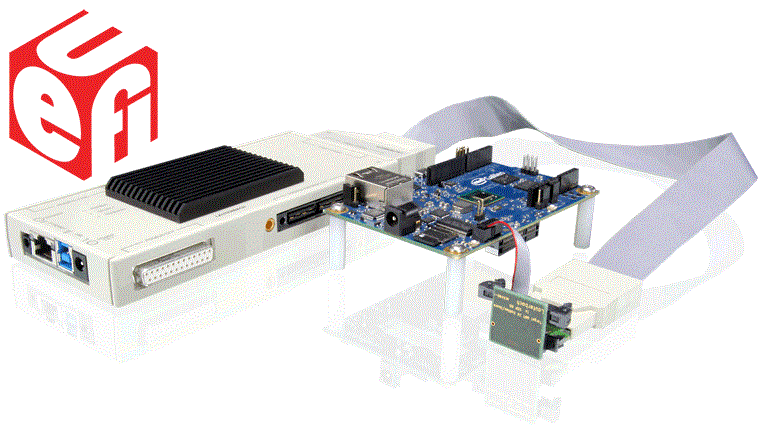
Hypervisor-aware Debugging
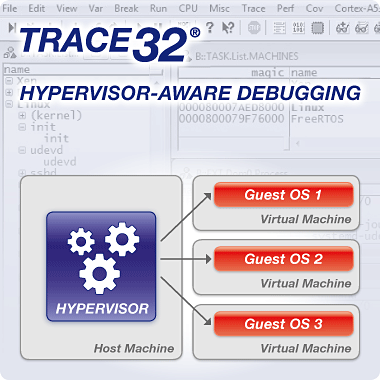
- Seamless debugging of the total system in stop-mode
- Hypervisor-awareness as a loadable debug extension is provided by Lauterbach
- Machine ID allows the user to uniquely identify any virtual machine in the system
- Machine ID provides full visibility of context of active and inactive virtual machines
- OS-awareness can be loaded for each virtual machine
OS-aware Debugging
- Real-time, non-intrusive display of RTOS system resources
- Task stack coverage
- Task related breakpoints
- Task context display
- SMP support
- Task related performance measurement
- Statistic evaluation and graphic display of task run times
- Task related evaluation of function run times
- PRACTICE functions for OS data
- Easy access via RTOS specific pull-down menus
- Support for all major RTOSes
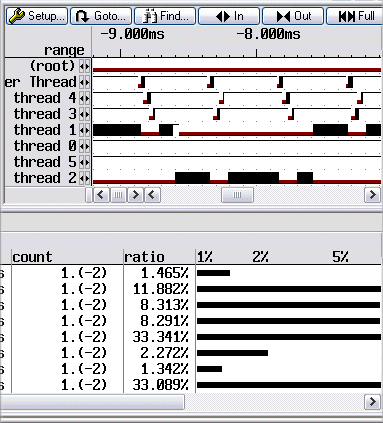
Android Debugging
- Stop-mode-debugging for ARM
- Support for Android L/M/N
- Debug information from Elf/DWARF file or by parsing the OAT data
- Full Android and OS-aware interpretation based on RAM dump on TRACE32® Debugger or on TRACE32® Instruction Set Simulator
- Android L/M
- Native Debugging of Android Framework and Apps (ahead-of-time compilation)
- Android N
- Display of the frame levels with Java-to-native transitions for interpreted code
- Native debugging of ahead-of-time and just-in-time compiled code
- Requires Linux OS-awareness


